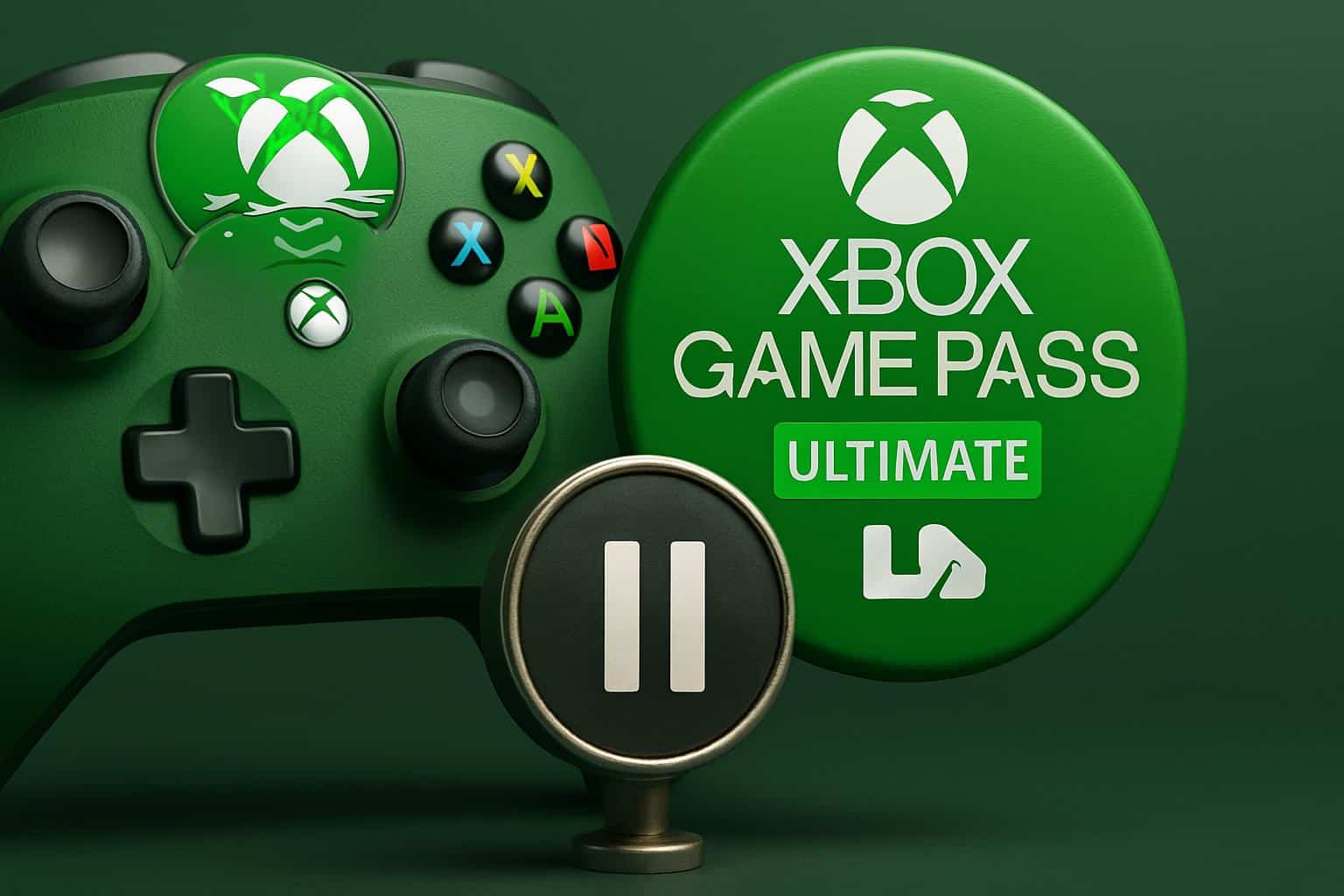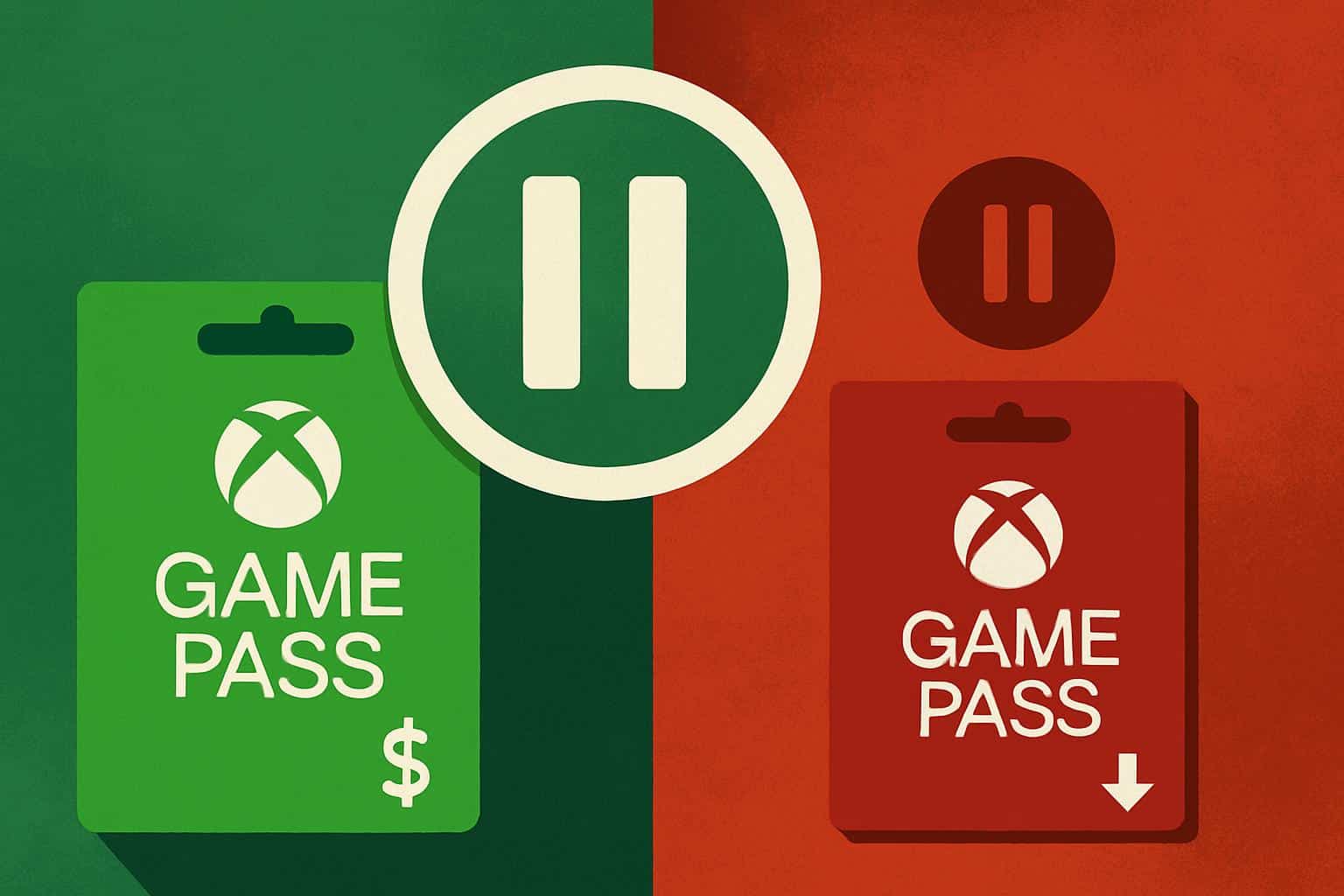Microsoft is gently reversing course on a recent Xbox Game Pass Ultimate price change, but only for some customers. The company has told some subscribers that their current auto-renewing plans will remain in place for now at the existing rates, while new purchases will reflect a higher price. That reprieve does not extend to all, however, leaving a number of players with varied results based on where they live and how they handle their accounts.
What Microsoft Is Really Changing with Game Pass
While acknowledging that price hikes would be in place for new purchases in some markets, active subscribers who purchased auto-recurring plans in those regions could continue renewing at their current price “for now,” the company said in an email to Xbox Game Pass Ultimate members. If a subscriber cancels or modifies plans, any new subscription will be charged at the then-current rate. The company also promised to notify such customers before changing prices (no less than 60 days in advance).

Microsoft confirmed the messaging to reporters, noting that the Game Pass update as a whole remains consistent. A company spokesperson said existing customers in certain countries will carry on at their current rate “in compliance with local regulations” and that impacted subscribers will be alerted well in advance of any changes. The wording suggests a mixture of compliance obligations and operational timing, rather than a volte-face.
Who Gets Relief, and Who Doesn’t Under the Pause
Of note, Microsoft has insisted that the pause isn’t affecting subscribers in the U.S. or UK. What that means in layman’s terms: No mercy for those markets; the amended pricing plan goes ahead as scheduled, so existing subscribers can count on being charged the higher rate once their billing cycles come up for renewal.
The patchwork pace has led to confusion. Some customers who disabled auto-billing or canceled in protest must now pay the higher monthly price if they come back. Community threads on gaming forums and social platforms document the feeling — frustration over mixed messages; confusion about what countries count as qualifying; worry that loyal subscribers who remained on auto-renew aren’t being treated the same as those who paused service to cut costs.
Why the Hike and Why the Partial Pause Is Happening
Game Pass has become one of the industry’s most powerful subscriptions, and Microsoft had already disclosed about 34 million members across console and PC. Operating a library that includes day-one first-party releases, big third-party partnerships and cloud streaming is going to be expensive. The baseline costs of the service have been raised by content licensing, infrastructure, and a heavier slate of blockbuster launches — especially when Microsoft brings in major publisher catalogs.

The wider market backdrop also matters. Entertainment and gaming subscription costs have generally been on the rise over the past couple of years, from premium streaming video to rival gaming plans. Sony hiked prices of PlayStation Plus for some tiers, and publishers are increasingly trying to sell you in with subscription bundles that cover add-ons and cloud access. Analysts who follow games-as-a-service say companies are trying to optimize average revenue per user against “churn” (the percentage of a company’s customers, players or subscribers who leave during a given period) and that the firms tend to test region-specific strategies before scaling up globally.
Microsoft’s “for now” language seems based on a mix of regulatory and churn-management calculus. Some countries have longer notice windows for changes to recurring contracts, and staggered timing can lessen cancellations if a firm anticipates pushback. The result, though, is a mishmash that’s difficult for consumers to interpret — particularly when multinational services wear different hats from one place to the next.
What Subscribers Can Do Now to Manage Price Changes
If you’re in an applicable country and prefer to keep the current rate, we recommend that you remain on auto-renewal until then, and refrain from modifying — downgrading or canceling / switching plans — your subscription between now and Microsoft providing further instructions. Monitor your account emails and the subscription page for a 60-day heads-up if anything changes. If you’re in the U.S. or UK, prepare for the new price at your next renewal, and consider whether you are getting full value out of features like cloud play, PC access and day-one releases.
It might also be worth considering the alternatives. Xbox Game Pass Core provides multiplayer access and a smaller rotating catalog for less, while PC Game Pass works better if you are mainly gaming from Windows. Seasonal subscribing — turning it on for new releases or when the back catalog builds, then pausing — has become a popular strategy to control monthly expenses, but you’ll have to suck up the new rate when you return.
The bottom line: Microsoft is delaying the spike for Xbox Game Pass Ultimate in certain countries, but this isn’t an across-the-board freeze. The company is walking a fine line between climbing content costs, regulatory strictures and subscriber churn. For players — people who take the wait-and-see approach, but will do a piecemeal purchase or two in the frenzy while trying not to pay full price for released items outside waiting until prices reset down somewhat after three weeks — your best bet is knowing which market snapshot rules are being used this time and reading those billing notices with a fine-toothed comb in order to make the call on if continuous access justifies that higher bill.

